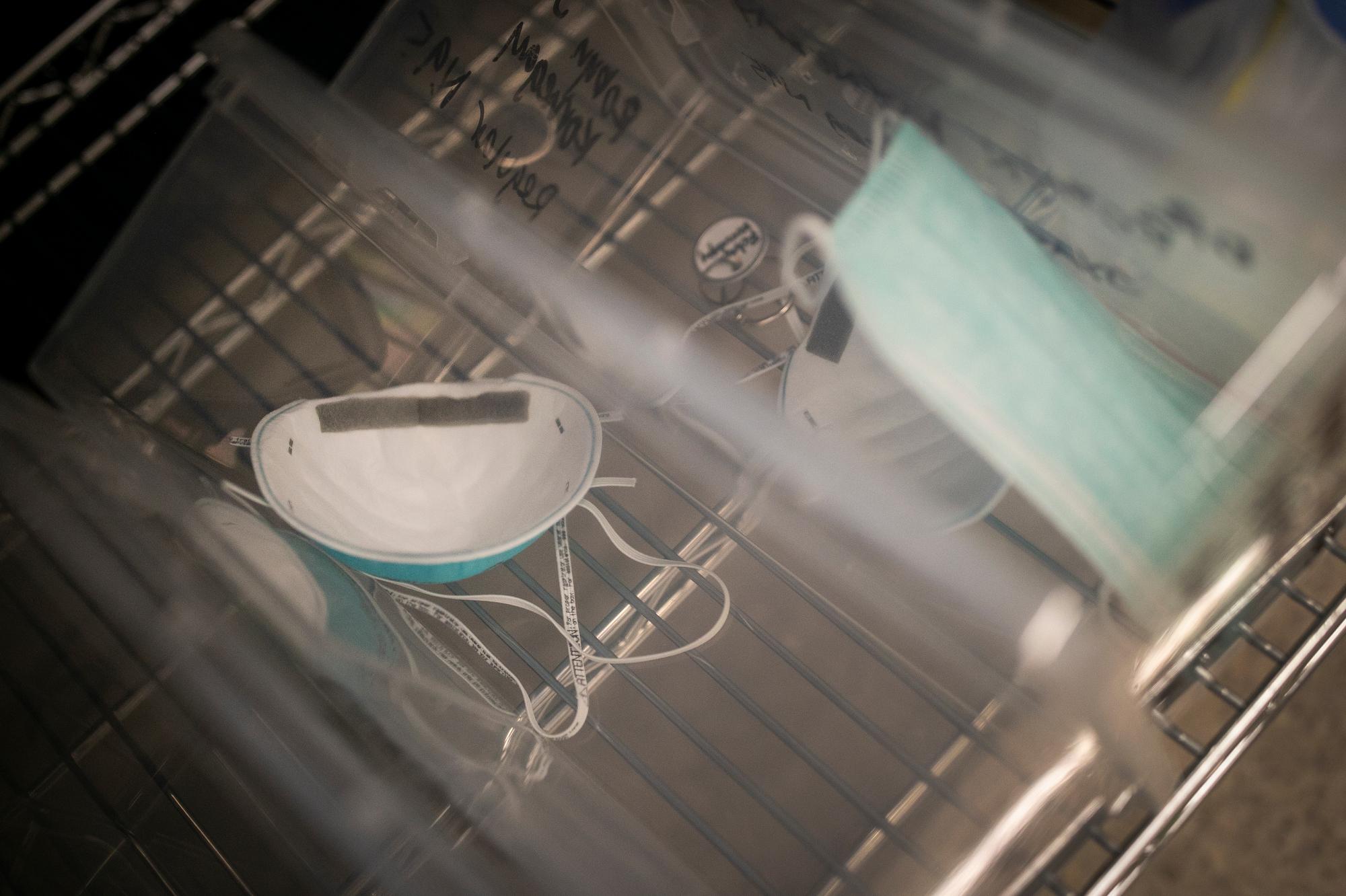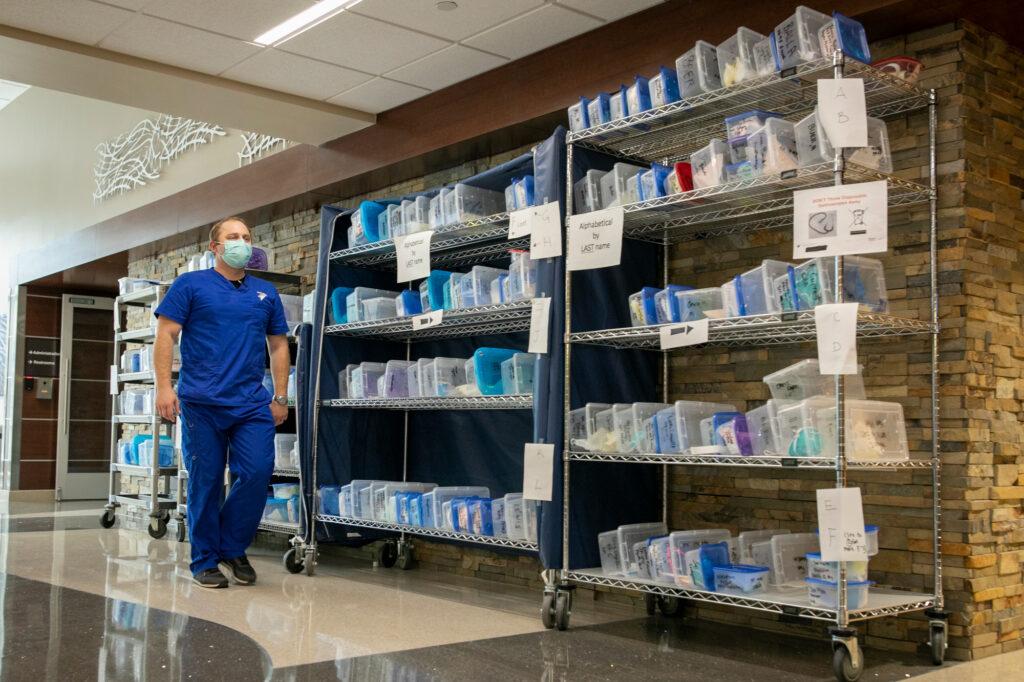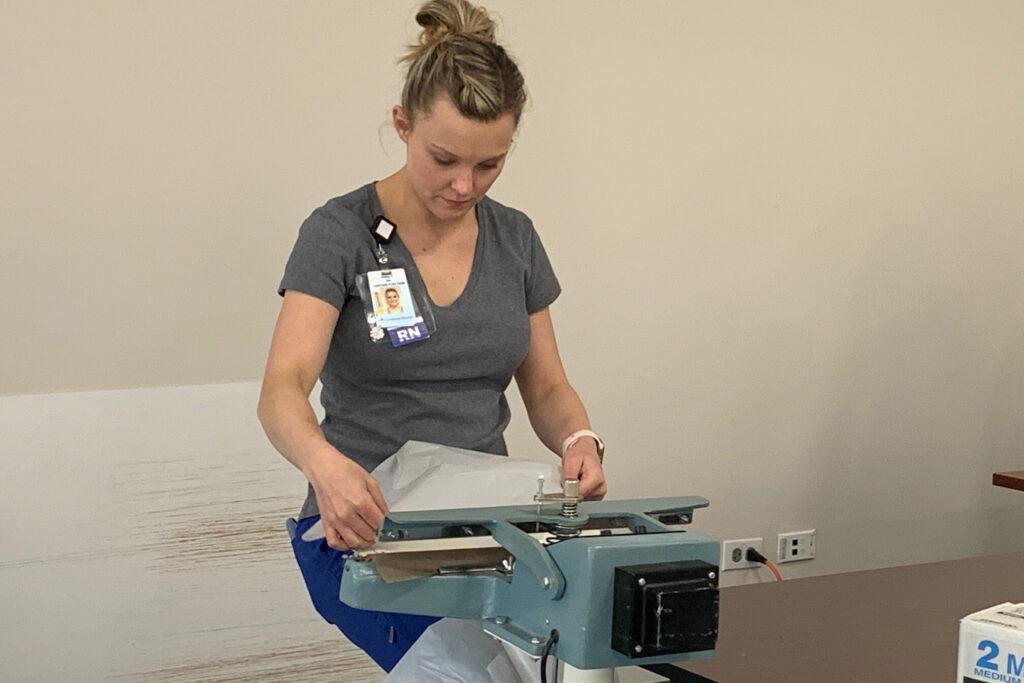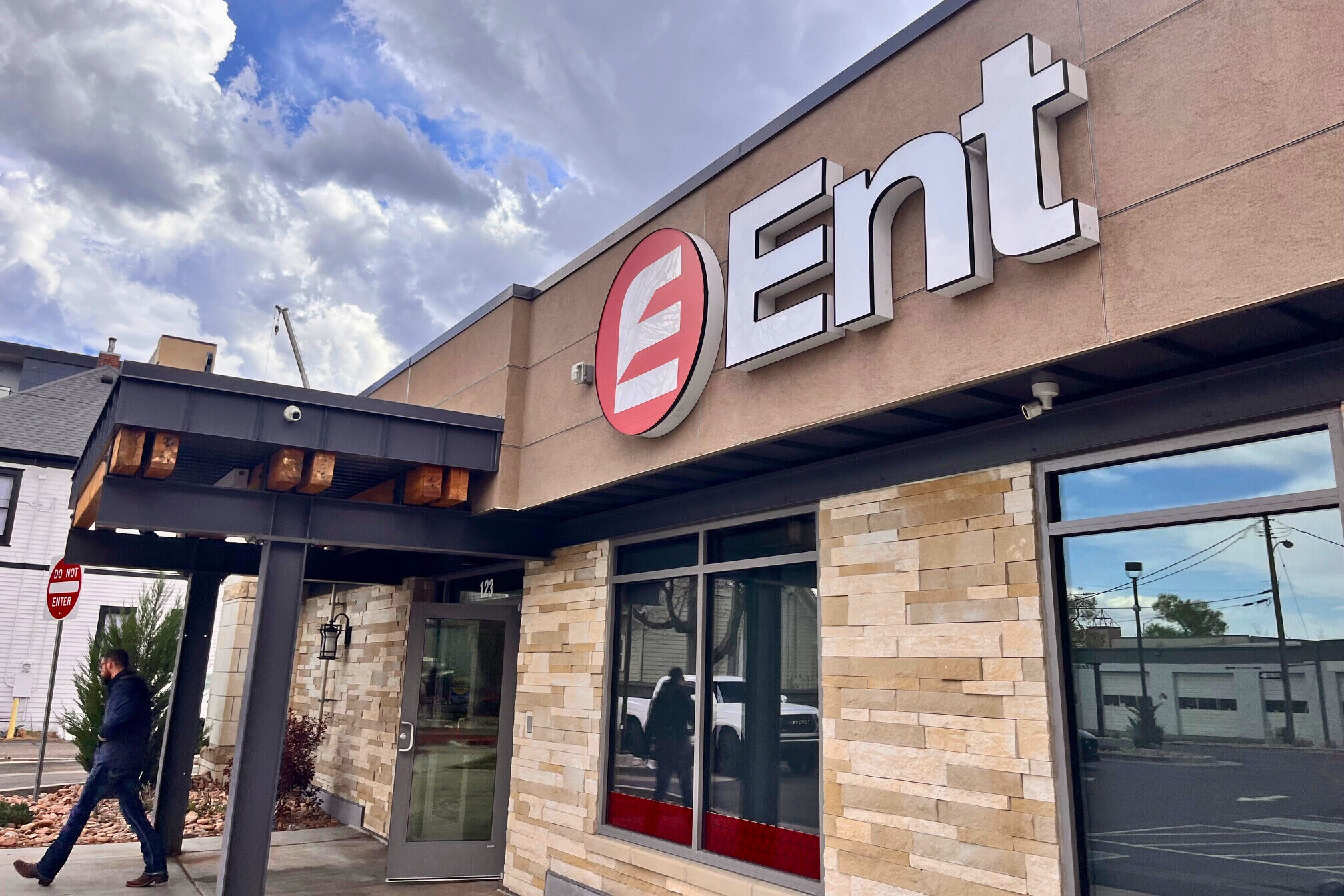
As Colorado prepares for what could be a third spike in COVID-19 infections this fall and winter, physicians like Dr. Ricky Dhaliwal are focused on having enough equipment to protect themselves and patients from the coronavirus.
And, at least when it comes to high-quality masks, Dhaliwal says supplies are still not quite where they should be.
Dhaliwal, who sits on the board of the Colorado chapter of the American College of Emergency Physicians, said even as patient numbers have declined in the state, N95 masks — the gold standard for virus protection — are still being used on multiple patients. That, said Dhaliwal, is a surefire way to increase the spread of infection.
“Normally, with PPE, the way they use N-95 masks in a non-COVID-19 era would be a one-time use for one patient for the day,” Dhaliwal said. “Right now, we’re using one N-95 mask for multiple patients.”
Scientists at the National Institutes of Health say if N95 masks are disinfected between use, they can be reused several times. But some doctors say masks are being reused without going through the disinfection process, typically with a hydrogen peroxide treatment.
Colorado officials said the state and local hospitals have made progress in increasing their stores of PPE, but Kevin Klein, Colorado’s director for the Division of Homeland Security and Emergency Management acknowledged that it remains very difficult to get N95 masks and gowns at the volume the state needs.

Klein said the root of the problem is an unstable supply chain: Companies, especially smaller ones, are wary of boosting production of medical equipment.
“An independent factory doesn’t want to get stuck investing in a lot of manufacturing capacity,” Klein said. “Then a vaccine comes out in three months and ... all of a sudden demand drops off.”
The supply chain has been a challenge from the start of the pandemic, made even tougher because Wuhan, China, where the virus started, was a primary maker of medical supplies. Klein recounted the early days when officials were scrambling to get more of everything.
“We had demand globally exceeding supply. We had no federal strategy to address this” Klein said. “Each state was left to their own devices. Each state was bidding against each other.”
- Polis Is Phasing Out Colorado’s COVID-19 Health Equity Panel, Even As Gaps Persist In The Coronavirus’s Impact
- Frustration And Fear Set In As CU Boulder Classes Go Remote In Face Of Rising Coronavirus Cases
- How Colorado Ski Resorts Are Preparing For A Winter Season During Coronavirus
- Colorado ‘COVID Long Haulers’ Suffer Coronavirus Symptoms Weeks, Or Even Months, Later
Klein remembers he and other Colorado officials doing things they never imagined.
“We’re making late-night deals with a friend of a friend in China-type things,” he said. “He’s got a factory there. We're setting up escrow agreements, you know, things that we just normally would never do.”
At the same time, hospital systems started making PPE from scratch. Centura Health set up a makeshift factory in a conference room at corporate headquarters in Centennial. It tapped its workers to make gowns, including some doctors and nurses who’d stopped doing elective surgeries because of the pandemic.
“People ... were cutting plastic, sealing it with these special sealers that I think were used for bookbindery”, said Centura spokesperson Joel Malecka.
Malecka recounted workers in the conference room 24/7 with music playing in the background and a shared mission.

Today, the conference room at Centura is empty and neither state officials nor Colorado’s hospitals think they’ll have to return to the bleak early days of COVID-19.
Hospital systems now are trying to take advantage of a lull in the number of patients to get a handle on supplies. The HealthONE system has designated so-called PPE czars to track supplies at each facility. Janet Garrett is the PPE czar at Sky Ridge Medical Center in Lone Tree.
Sky Ridge has the advantage of being part of a larger hospital system that has warehouses across the country and the state. Those warehouses feed supplies to hospitals.
“They are always telling us what is in the warehouses and what's in stock,” Garrett said. “They are anticipating shortages or demands on specific areas of PPE.”
The knife's edge on which Colorado and other states are balancing is the size of any possible fall or winter patient surge. If it looks like the summer bump, when 412 people were hospitalized with confirmed or suspected COVID-19 on July 17, the state should be okay.
But, if for a sustained period it looks like April 9, when 1,277 hospital beds were occupied by patients with confirmed or suspected COVID-19, there are concerns that supplies won’t meet demand.
The Colorado Hospital Association, which represents over 100 hospitals and hospital systems around the state, checks in weekly with its members about PPE. Julie Lonborg, Senior Vice President of Communications, said at the height of the pandemic, many hospitals were short on PPE but most report they now have enough for the short-term.
“But I don't think there's a lot of confidence that we have enough should we hit a significant surge,” Lonborg said. “And I don't think we have a lot of confidence at the moment in the supply chain if we hit a significant surge.”
This story has been edited to correct the name of the PPE czar at Sky Ridge Medical Center.









